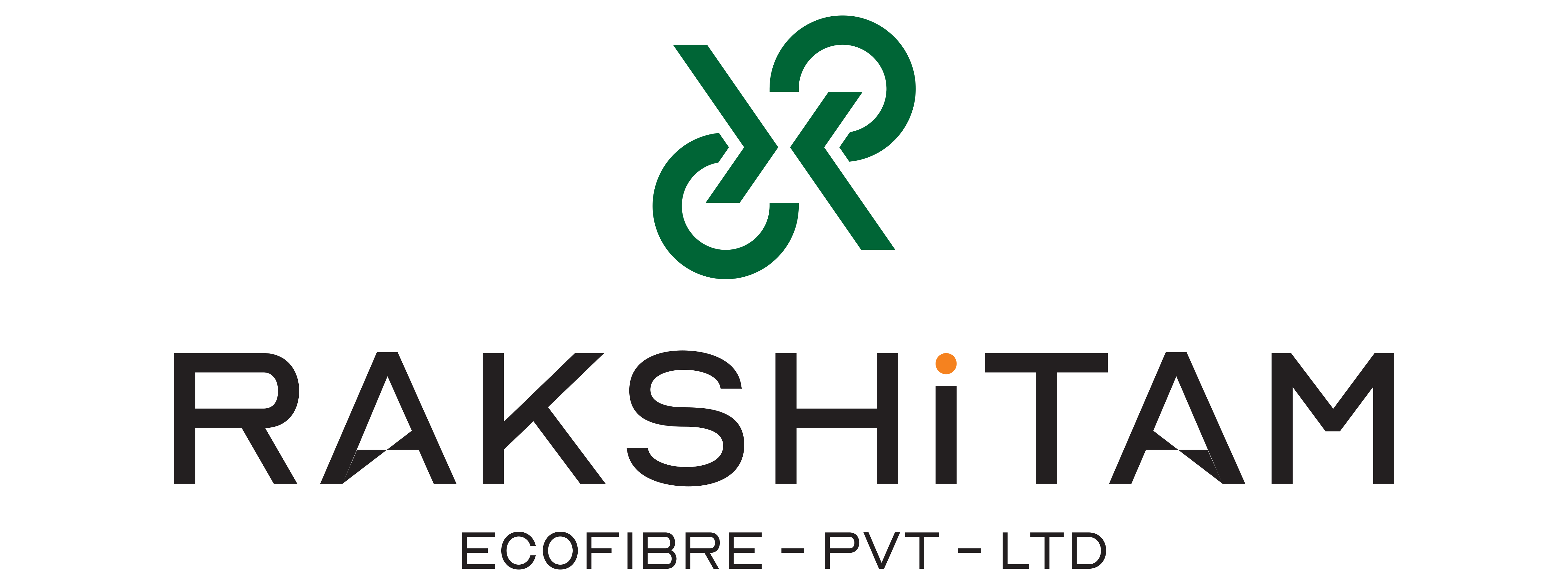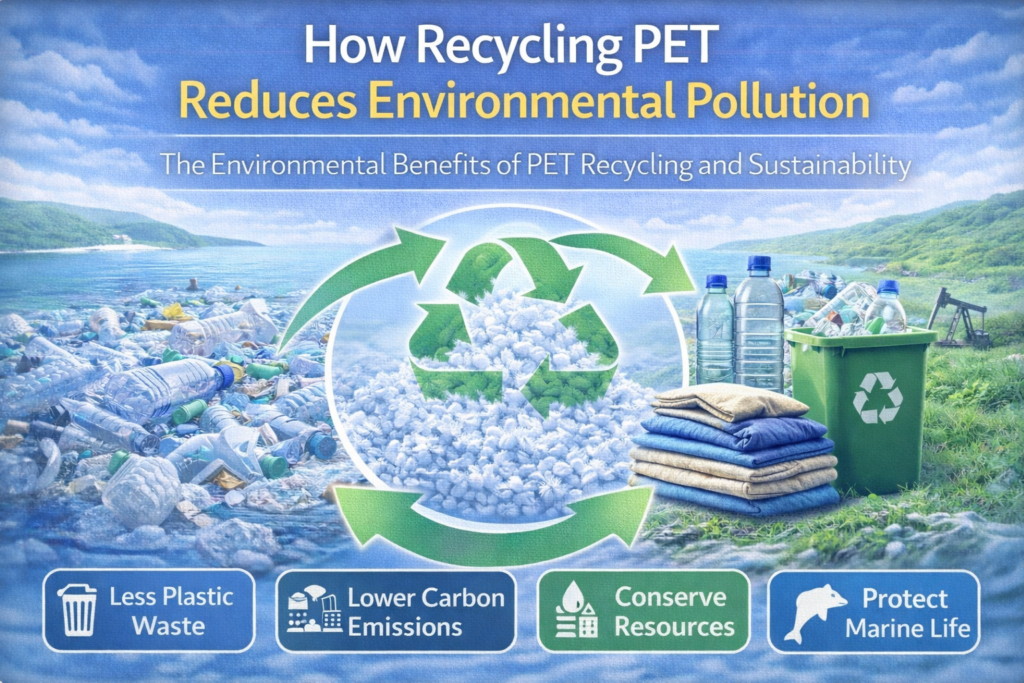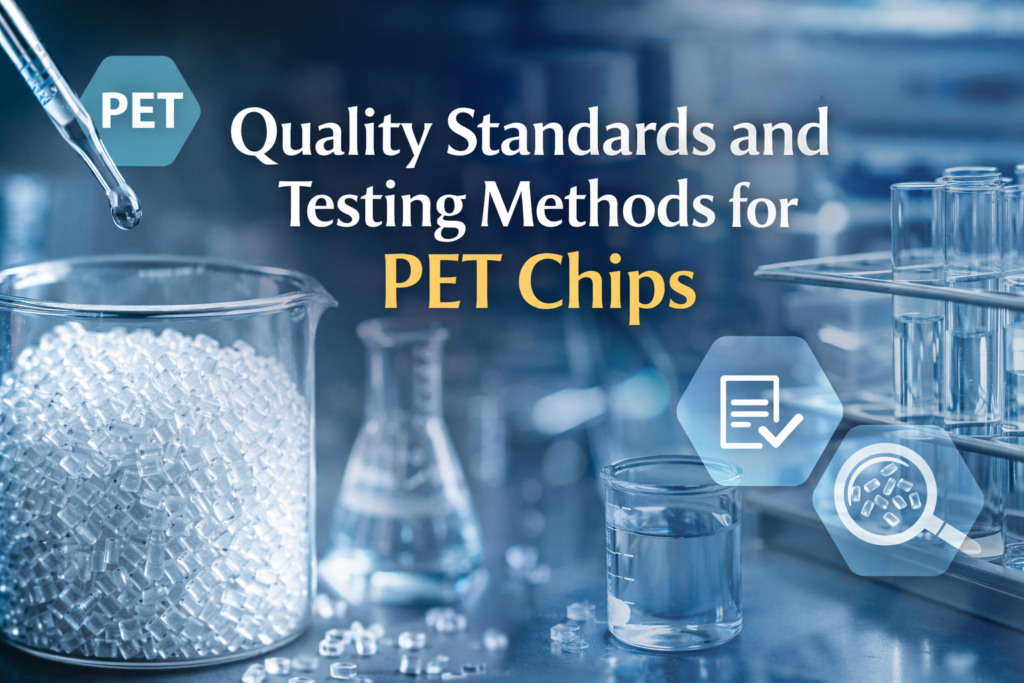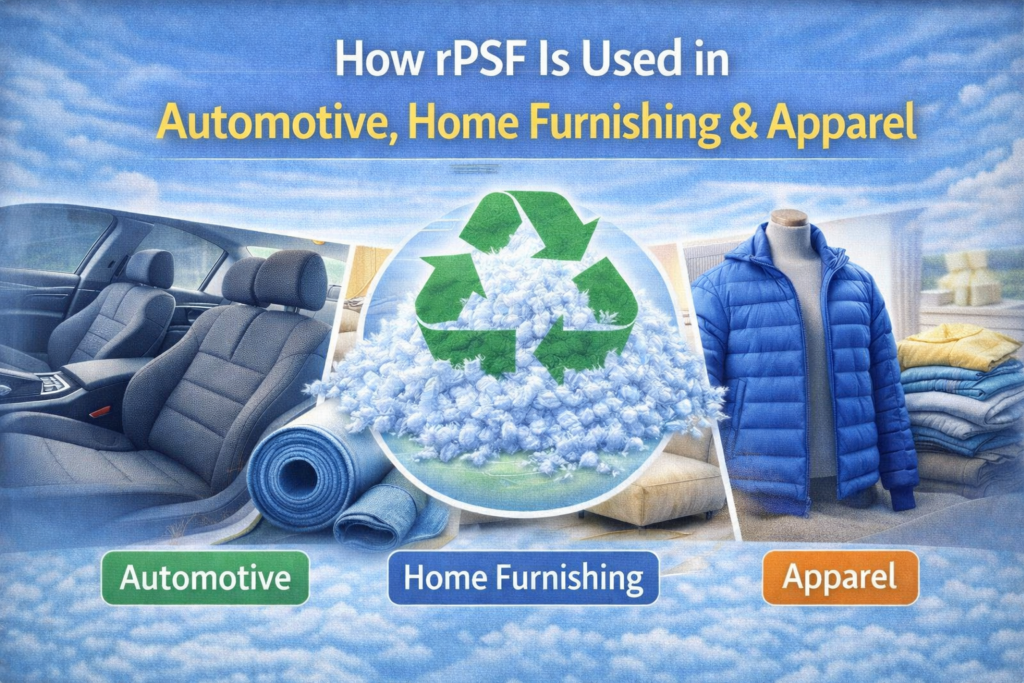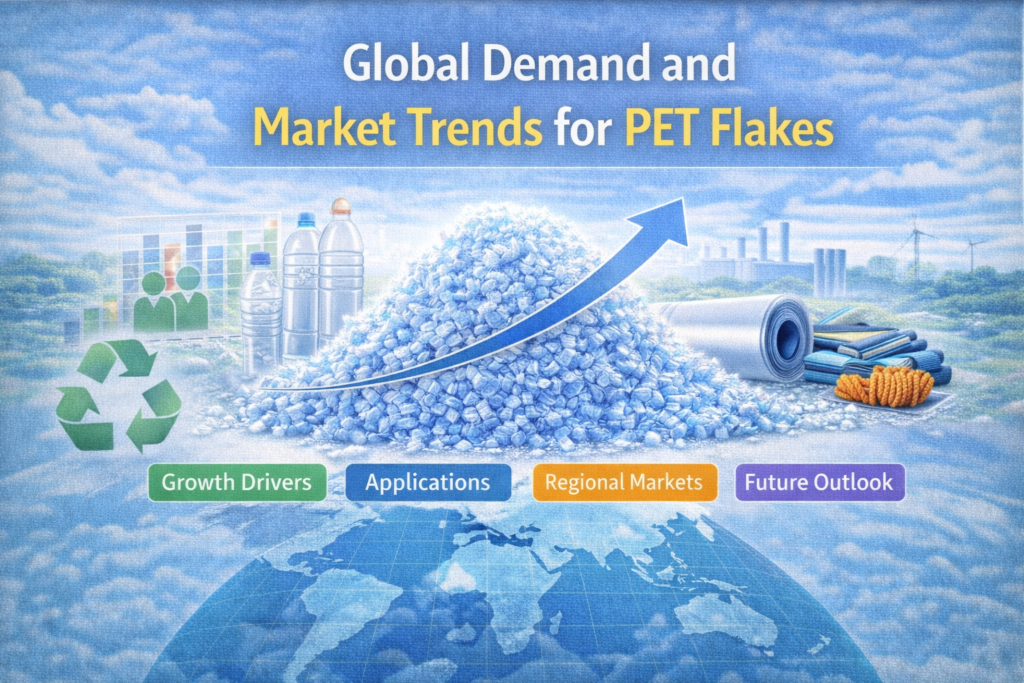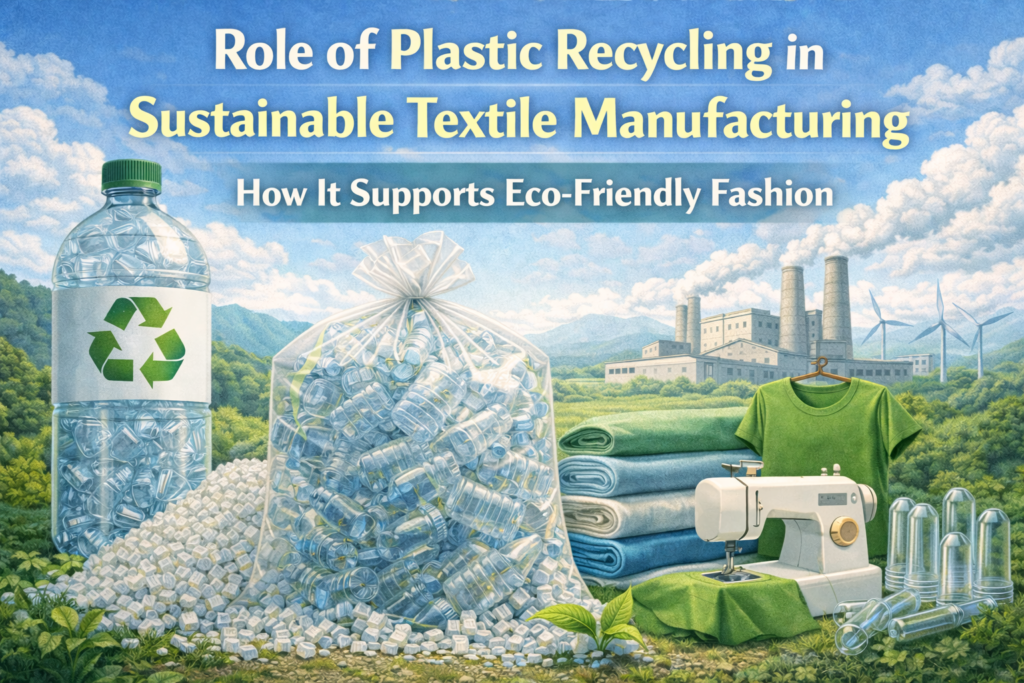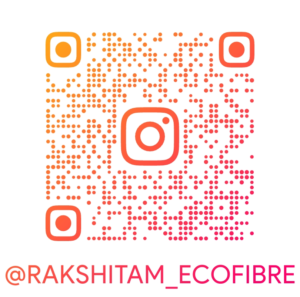Everywhere you go nowadays, sustainability is at the forefront. Companies are beginning to adopt eco-friendly practices and rPET white flakes are a prime example of this shift. These flakes are classified as high-purity materials and are created from post-consumer PET waste like water bottles. rPET white flakes are an essential raw material needed for manufacturing environmentally friendly plastic products. Be it in packaging, textiles, or industrial applications, rPET white flakes provide a sustainable and dependable substitution for virgin plastics.
The purpose of this blog is to discuss the definition, production processes, benefits, application range of rPET white flakes along with highlighting features of Indian manufacturers which makes them global suppliers on high quality recycled PET material.
🔄 What Are rPET White Flakes?
rPET white flakes are described as small, semi-transparent, or white pieces of plastic stemming from used polyethylene terephthalate (PET) bottles and containers. Like all other consumable goods, these pieces undergo rigorous cleaning and shredding to enhance purity ensuring great performance when reprocessed into new products.
Flakes have always been colorless in nature hence termed clean appearance serving base material tagline for various reused plastic goods.
♻️ What Are the Steps in Producing rPET White Flakes?
The process of producing rPET white flakes is broken down into key steps:
- Collection of used PET bottles
- Sorting, and separation of caps and labels as well as other contaminants.
- Removal of glue and residues by hot or cold Wash.
- Shredding and Flaking Drying.
- Ensuring Consistency – performing a quality control check on consistency, purity, and performance checking.
To achieve food grade standards for high purity rPET flakes in India, renown manufacturers employ advanced infrastucture for sorting washing to reduce cross contamination.
✅ Advantages Of Using rPET for White Flakes
The use of fragments provides multiple benefits to both the producers as well as our mother nature:
- Environmental Sustainability: Drastically reduces reliance on new primary substances while keeping disposed-for-used polyethylene terephthalate (PET) away from dumps or ocean harm.
- Cost Efficiency: Provides better value without chaining quality compared to new PET raw materials.
- High Purity: Best for sensitive operations like food packaging and textile manufacturing contains optimal performance.
- Versatility: Can be utilized in creating PET sheets, fibers, straps, or even bottles and filament yarns
🏭 Applications Across Industries
The uses of rPET white flakes are numerous, including:
- Textile Industry: Used in creating polyester staple fiber, filament yarn, and non-woven textiles.
- Packaging Sector: Food-grade containers and sheets as well as bottles and jars.
- Strapping Solutions: PET straps for industrial packaging strapping.
- 3D Printing: used as feedstock to manufacture recycled filaments.
- Construction Materials: geotextiles and insulation materials.
Because they seek both efficiency and environmental sustainability, many companies consider rPET white flakes crucial because of their versatility.
India’s Role in rPET Flakes Manufacturing
Thanks to the following factors, India has established itself as a dependable source of high-grade rPET white flakes:
- Recycling Facilities Infrastructure
- Price Competitiveness & Economies of Scale
- Compliance with Export Regulations (GRS, FDA, ISO-certified facilities)
- Exporting Hub Geopolitics
Innovation achieved alongside sustainable recycling processes in response to international demand is captured through Surat, Daman, and Silvassa’s growing manufacturing regions.
🌱 Sustainable Future with rPET
The demand for environmentally responsible products is transforming the marketplace and, in return, the supply chain. This has led to rPET white flakes becoming increasingly sought after. Incorporation of rPET in brand production illustrates the commitment towards sustaining the environment while slashing costs on resources.
With high purity flakes, businesses are now able to shift relationship dynamics when it comes to their carbon footprint as well as reputation. Today, making them a frontrunner within eco friendly markets.
Also Read: Recycled Polyester Staple Fibre in India Eco-Friendly Manufacturing for Every Industry Need
📝 Conclusion
Repurposed plastic through the form of lawet film and integrated textures creates enhancements that strips identity from waste. The flaskforward an indispensable element shall prove severe net gains aimed towards economical edge restrain for reliant multidimensional stages.
Now’s the time! Cost cuts coupled with maximized monetary gain: its just wax on wax off flimsy feel good business.
